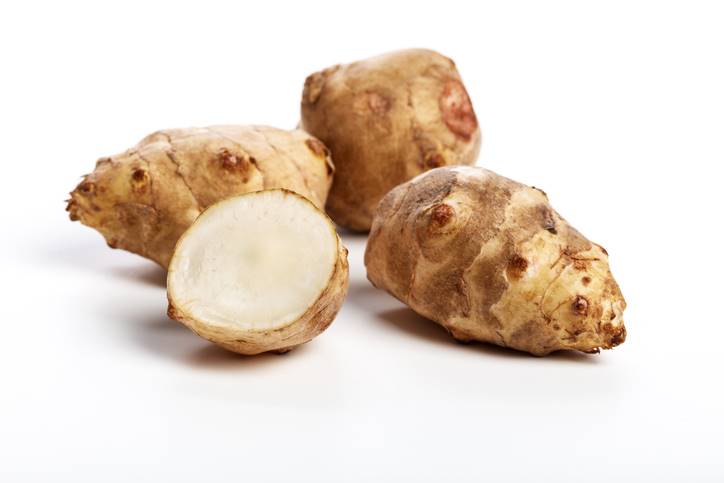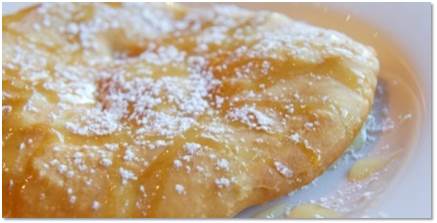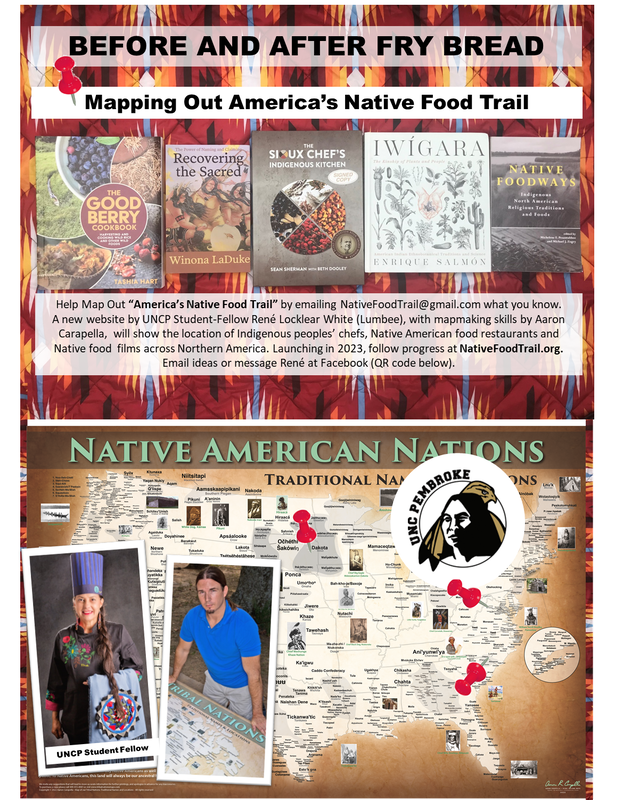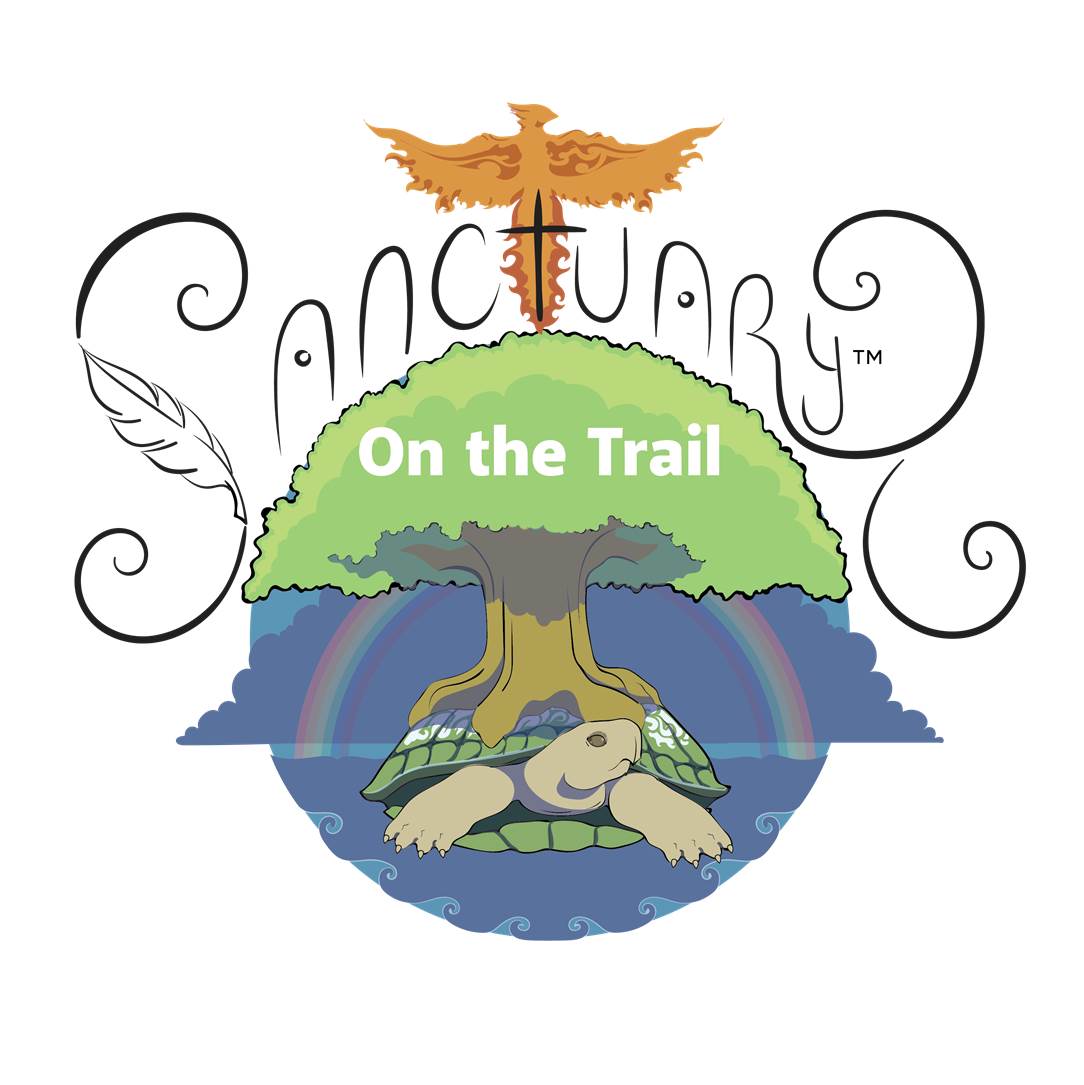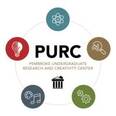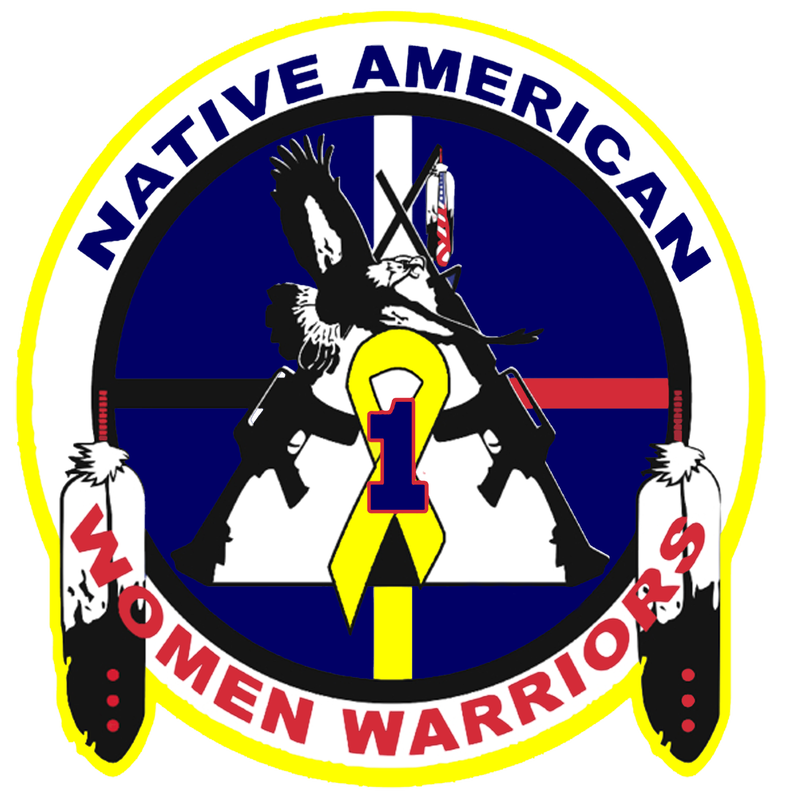Decolonizing Native FoodThis is a new and hopefully growing digital-teaching platform called America’s NativeFoodTrail.org.
The purpose of this research project is to create a new digital asset to help reawaken our Indigenous people and the public to Indigenous culinary traditions and sustainable practices by Native American Indians in the United States. Reaching into the four directions, this project will map out those contributing to our awareness of Indigenous pre-contact diets and post frybread era. The final result will include:
Is it possible to reconnect our Native people to their Native foodways and can this reconnection help heal? Could promoting traditional Native diets help turn American’s declining health around? Contemporary health issues facing American Indians include higher rates of drug abuse, alcoholism, obesity, diabetes, cancer, poverty and malnutrition that compound post-traumatic stress disorder, depression, historical trauma, suicide and genocide. NativeFoodTrail.org can help chefs like Sean Sherman, founder of The Sioux Chef and author of The Sioux Chef's Indigenous Kitchen draw attention to a “long-forgotten Native culinary tradition”. Other native restaurants will include: cafegozhoo.com; owamni.com; makamham.com/cafeohlone; and wahpepahskitchen.com. NativeFoodTrail.org will highlight award-winning documentaries like “Return: Native American Women Reclaim Foodways for Health and Spirit”. In this film, filmmaker Karen Cantor draws attention to the fact that American Indians have trouble tolerating most foods sold in commercial grocery stores, that “Over 15% of Indigenous Americans have type-2 diabetes”; and Native Americans’ lives are cut short due to declining health and a lack of access to their own foods. "Mapping America’s Native Food Trail is also a decolonizing way to create new possibilities to help reverse American Indian’s health conditions by empowering Native people as they struggle to survive assimilation and reclaim our ancestral foodways," shared student René Locklear White (Lumbee) who received the fellowship from her tribal university to research and create this project. "I believe food is medicine and I believe one way to help decrease health disparities is through reconnecting our Indigenous people to our Native 'First Foods'," added René. Background, Student Research ProjectRené Locklear White (Lumbee chef photo right) is a recipient of the University of North Carolina at Pembroke (UNCP) Summer 2022 Pembroke Undergraduate Research and Creativity (PURC) fellowship. Her winning proposal is to map out America's Native Food Trail. Her friend Aaron Carapella and map-maker volunteered to help her.
The PURC Center at UNCP stimulates, supports and promotes inquiry, discovery and creativity in scholarship and the arts through mentored research experiences with faculty and other regional, national and international scholars and professionals. René's mentor is UNCP's American Indian Studies Professor Dr. Jane M. Haladay. The PURC Center facilitates and coordinates preparation in research skills necessary for professional fields and graduate study. The Center is designated to serve as a clearinghouse for undergraduate research and creativity opportunities on and off campus. For more information about PURC, visit or call 910-521-6841 or email purc@uncp.edu. |
From Sunchokes to FrybreadAre Sunchokes (Jerusalem Artichokes) suitable food for diabetics? Carol Bowman-Williams, a consumer information specialist for Frieda Caplan's Sunchokes, said the company's promotion of the vegetable as an excellent food for diabetics is supported by medical literature and a consulting doctor's advice. (Source: Washington Post) Help Map Out America's NativeFoodTrail.org by emailing NativeFoodTrail@gmail.com or visiting Facebook and share with us what you know.
|
Special Recognition to our friend Dr. Rudy Coronado Jr. for his relentless friendship and advice
Map Partner: Aaron Carapella - Tribal Nations Maps (949) 415-4981 tribalnationsmap@gmail.com
This project is a result of a PURC Fellowship from the University of N.C. at Pembroke and
Endorsed by the Native American non-profit Sanctuary on the Trail 501(c)3
Site powered by Weebly. Managed by iPage
Map Partner: Aaron Carapella - Tribal Nations Maps (949) 415-4981 tribalnationsmap@gmail.com
This project is a result of a PURC Fellowship from the University of N.C. at Pembroke and
Endorsed by the Native American non-profit Sanctuary on the Trail 501(c)3
Site powered by Weebly. Managed by iPage
Fair Use Notice
This website may contain copyright material, the use of which has not been specifically authorized by the copyright owner. If we make such material available, it is in an effort to advance understanding of environmental, political, human rights, economics, democracy, scientific, and social justice issues, etc. We believe this constitutes a “fair use” of any such copyrighted material as provided for in section 107 of the U.S. Copyright Law. In accordance with Title 17 U.S.C. Section 107, the material on this site is distributed without profit to those who have expressed a prior interest in receiving the included information for research and educational purposed. Our non-profit’s transformative mission is to provide new decolonized content to help educate the general public and help reduce suffering. Our information can be awareness provoking using factual content.
